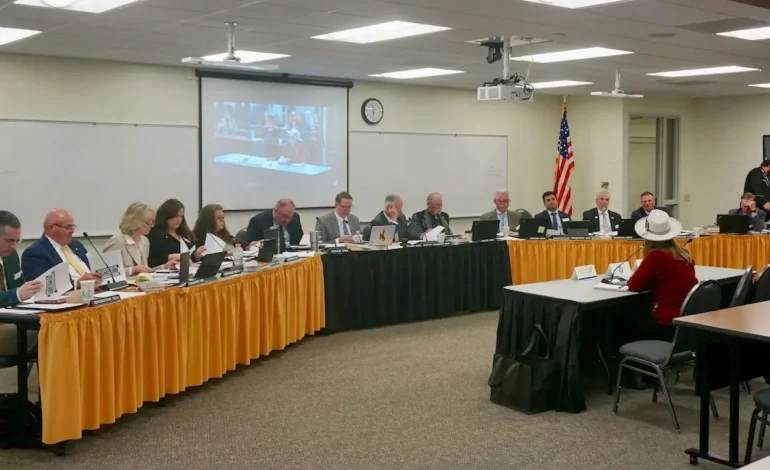As political tensions surrounding the judiciary intensify both nationally and within Wyoming, state lawmakers are reconsidering the long-standing process by which judges are selected, Wyoming Tribune Eagle reports.
The discussion came to the forefront during a May 19 meeting of the Joint Judiciary Committee in Torrington, where outgoing Wyoming Supreme Court Chief Justice Kate Fox made her final official appearance.
The meeting followed public criticism from members of the Wyoming Freedom Caucus, who in recent blog posts accused the state’s judicial selection system of being controlled by “political insiders” and subject to “left-wing institutional capture.” The caucus highlighted recent court rulings and judicial nominations as evidence that the system lacks transparency and is shielded from public accountability.
Chief Justice Fox offered a strong defense of the judiciary’s role and its impartiality. Quoting from the state’s judicial conduct code, she emphasized that judges are bound not to be “swayed by public clamor or fear of criticism.” Rather, she said, they are tasked with interpreting laws—often in ways that may be unpopular but are legally sound.
Fox’s remarks came just days before her retirement, which is required by law upon reaching age 70. After 11 years on the state’s highest court, her departure marks a generational shift at a time when many of the new lawmakers—some aligned with the Freedom Caucus—are questioning the judiciary’s independence and proposing reforms.
Wyoming currently uses a version of the Missouri Plan to select judges. Under this system, a seven-member Judicial Nominating Commission reviews applicants and forwards three nominees to the governor, who then makes the final selection. The commission includes three attorneys elected by the Wyoming State Bar, three governor-appointed non-lawyers, and the sitting Chief Justice, who serves as chair.
Critics of the current system argue that the lack of public hearings or Senate confirmation excludes meaningful democratic oversight. In response, Rep. Jayme Lien (R-Casper) successfully advanced a proposal to consider a constitutional amendment requiring Senate approval for appointments to the state Supreme Court. The committee voted 8–6 to draft a joint resolution that could be presented to voters in a future election.
A narrower proposal from Lien, which would have mandated Senate confirmation for all judicial appointments without a constitutional amendment, failed on a tie vote.
While the debate at the Torrington meeting remained civil, it exposed deep divisions over how to balance judicial independence with public accountability. Some lawmakers argued that decisions on contentious issues—particularly abortion—have eroded trust in the judiciary. Notably, court rulings in Teton and Natrona Counties have blocked or paused legislative efforts to restrict abortion access, prompting concern from conservative factions.
Still, Fox and other defenders of the current system pointed to existing checks on judicial power. Judges in Wyoming face periodic retention elections, and the public can weigh in with the governor during the appointment process. Fox also suggested the court may consider making judicial applicant names public to increase transparency, a proposal welcomed by some lawmakers.
Rep. Tom Kelly (R-Sheridan) acknowledged that while he does not see a need for sweeping reform, the appearance of secrecy has contributed to public skepticism.
“Anything that government institutions can do to be open and transparent will help bolster faith in our system again,” he said.
As the committee prepares to revisit the issue in August in Casper, questions remain. Chief among them: how the Senate would handle judicial confirmations during the many months when it is not in session. With Wyoming’s part-time Legislature meeting as little as two months per year, critics of the proposed changes worry that delays in filling judicial vacancies could impact the functioning of the courts.
Even if a bill is drafted, it faces a challenging legislative path. Because 2026 is a budget session, the measure would require a two-thirds majority vote for introduction. And before that, the Joint Judiciary Committee must vote to formally sponsor it, requiring majority support from both its House and Senate members.










The latest news in your social feeds
Subscribe to our social media platforms to stay tuned